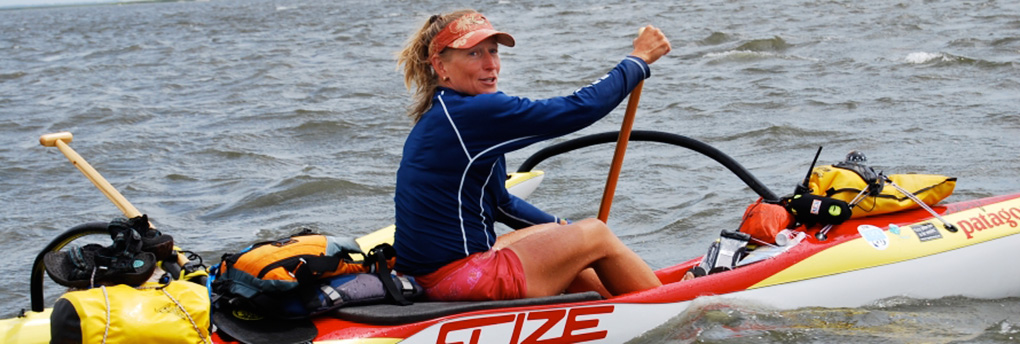When a collision last week between a New York Waterway ferry and a group of kayakers in the Hudson River sent several of them to the hospital, word got around fast among dedicated paddlers.
One was Margo Pellegrino, who has been on the Mississippi River and other heartland rivers this summer, heading south from Chicago to New Orleans on a mission to raise awareness of what clean water means to people who live and work on those waterways.
Pellegrino is an athlete and mother of two from Medford Lakes, N.J., who for years has done these kinds of marathon voyages for environmental causes, traveling as far as the entire East Coast between Maine and Florida. With her craft packed with navigational gear and VHF radios, she makes herself seen and heard by people who work on the water.
“It’s so different there,” Pellegrino said of the buzzing waters around New York City. “The ferries are on a mission, and they just go. My policy has always been to keep an eye out. You have to watch the traffic all the time.”
On the Mississippi, Tennessee-Tombigbee and other waterways, Pellegrino has been learning the slower ways of the rivers. She is often on the radio, calling ahead to hear what is around the next bend, and to let others know she is coming.
“I’ll do that when I’m on the waterway, and coming up to a lock. I’m as explicit as I can be, where I am, where I’m going,” she said. “The towboats are different on the Mississippi and all the rivers. They are pushing all that weight and they’re not nimble like ferries are.”
Pellegrino has heard some guff, like chatter that sounded like a crew talking on intercom, picked up by an open radio mic: “They were like, ‘Get off the river.’”
But most of her interactions with captains and crews have been positive, Pellegrino said. “They wish that every paddle craft person would carry a radio. They were very appreciative. They say they wish more people would talk to them.”
“I wouldn’t be out there without a VHF radio,” Pellegrino said. She has learned not to stick too close to a bank, for example: “You can really be in trouble if you’re too far over to one side. It’s better to be on one side of the channel, where they can see you.”
With the growing popularity of kayaks, stand-up paddleboards and other personal craft, recreational users have to share responsibility for safety, Pellegrino said, because “it’s not Mark Twain’s river anymore.”



.JPG.small.400x400.jpg)

